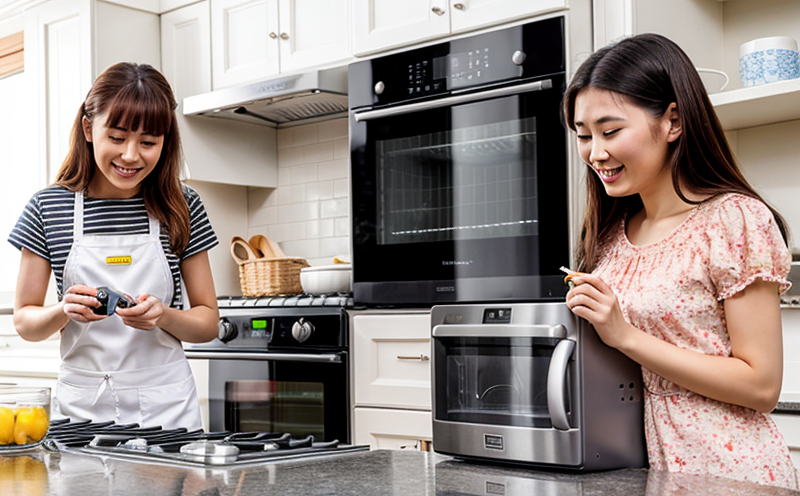Household Appliance Durability and Reliability Performance Testing
The durability and reliability performance testing of household electrical appliances is essential to ensure consumer safety, product longevity, and compliance with international standards. Quality managers, compliance officers, R&D engineers, and procurement professionals rely on rigorous tests that simulate real-world usage conditions to evaluate the robustness and consistency of products before they reach the market.
Our laboratory offers a comprehensive suite of services aimed at assessing the durability and reliability of household appliances. This includes testing for mechanical stress, thermal cycling, vibration resistance, and electrical load endurance under various environmental conditions such as humidity, temperature fluctuations, and voltage variations. The goal is to identify potential weaknesses early in the product development cycle so that improvements can be made before mass production begins.
During this process, we use state-of-the-art equipment capable of replicating extreme operating environments which may not be encountered during typical usage scenarios. For instance, our thermal chambers allow us to simulate high-temperature conditions while maintaining precise control over temperature changes and humidity levels. Similarly, our vibration testing rigs can subject specimens to simulated road transport or household appliance jostling.
The importance of this type of testing cannot be overstated given the increasing complexity and integration of electronic components within modern appliances. By accurately modeling these factors, we provide manufacturers with valuable insights into how their products will perform over time under realistic conditions.
Key aspects that are typically evaluated include:
- Mechanical strength
- Thermal stability
- Voltage tolerance
- Electrical efficiency
- Material integrity
- Operational consistency over time
These evaluations help ensure that the final product meets not only regulatory requirements but also exceeds customer expectations regarding performance and longevity.
In addition to physical testing, we also conduct electrical safety assessments using advanced diagnostic tools. This ensures that all components function correctly together without causing hazards such as overheating or short circuits.
Our team of experienced engineers works closely with clients throughout the entire testing process, providing feedback on preliminary results and recommendations for improvement if necessary. We aim to deliver detailed reports that not only summarize findings but also offer actionable insights based on our analysis.
By investing in durability and reliability testing early in the design phase, manufacturers can significantly reduce costs associated with post-production recalls or warranty claims. Moreover, successful completion of these tests enhances brand reputation by demonstrating commitment to quality assurance practices.
Applied Standards
The testing protocols we employ adhere strictly to recognized international standards such as IEC 60335-1 for general requirements and test conditions. These guidelines provide a robust framework within which our tests are conducted, ensuring consistency across different markets.
For specific types of household appliances like washing machines or air conditioners, additional standards may apply. For example, IEC 62789 specifies safety criteria for home-use laundry dryers while EN 50341 focuses on lighting equipment used in residential settings.
We also stay current with updates to these standards so that our tests remain relevant and up-to-date with industry best practices.
Why Choose This Test
- Achieve Regulatory Compliance: Ensure your products meet all applicable regulations and safety requirements.
- Risk Reduction: Identify potential issues early in the development process to avoid costly redesigns later on.
- Enhance Reputation: Demonstrate a commitment to quality through successful completion of rigorous testing procedures.
- Informed Decision Making: Receive detailed reports that provide valuable insights into product performance and areas for improvement.
The durability and reliability tests conducted by our laboratory go beyond basic functionality checks. They simulate real-world conditions under which appliances will operate, providing manufacturers with a clear picture of how their products are likely to perform over time.
This information is crucial for making informed decisions about design modifications or material choices that could extend the life span of an appliance while maintaining its efficiency and effectiveness.
Environmental and Sustainability Contributions
The durability and reliability testing we offer has significant environmental benefits. By ensuring that household appliances last longer, we contribute to reducing waste generated by premature failures or obsolescence due to poor quality control during manufacturing stages.
- Prolonged Use Lifespan: Longer-lasting products mean less frequent replacements, which in turn reduces the demand for new materials and energy-intensive production processes.
- Energy Efficiency: Testing helps identify ways to improve efficiency, thereby lowering overall electricity consumption across millions of households globally.
Incorporating sustainable practices into product development not only benefits manufacturers but also supports global efforts towards reducing carbon footprints and promoting circular economy principles. Our testing services play a vital role in achieving these goals by helping create more resilient, efficient, and environmentally friendly products for consumers worldwide.





